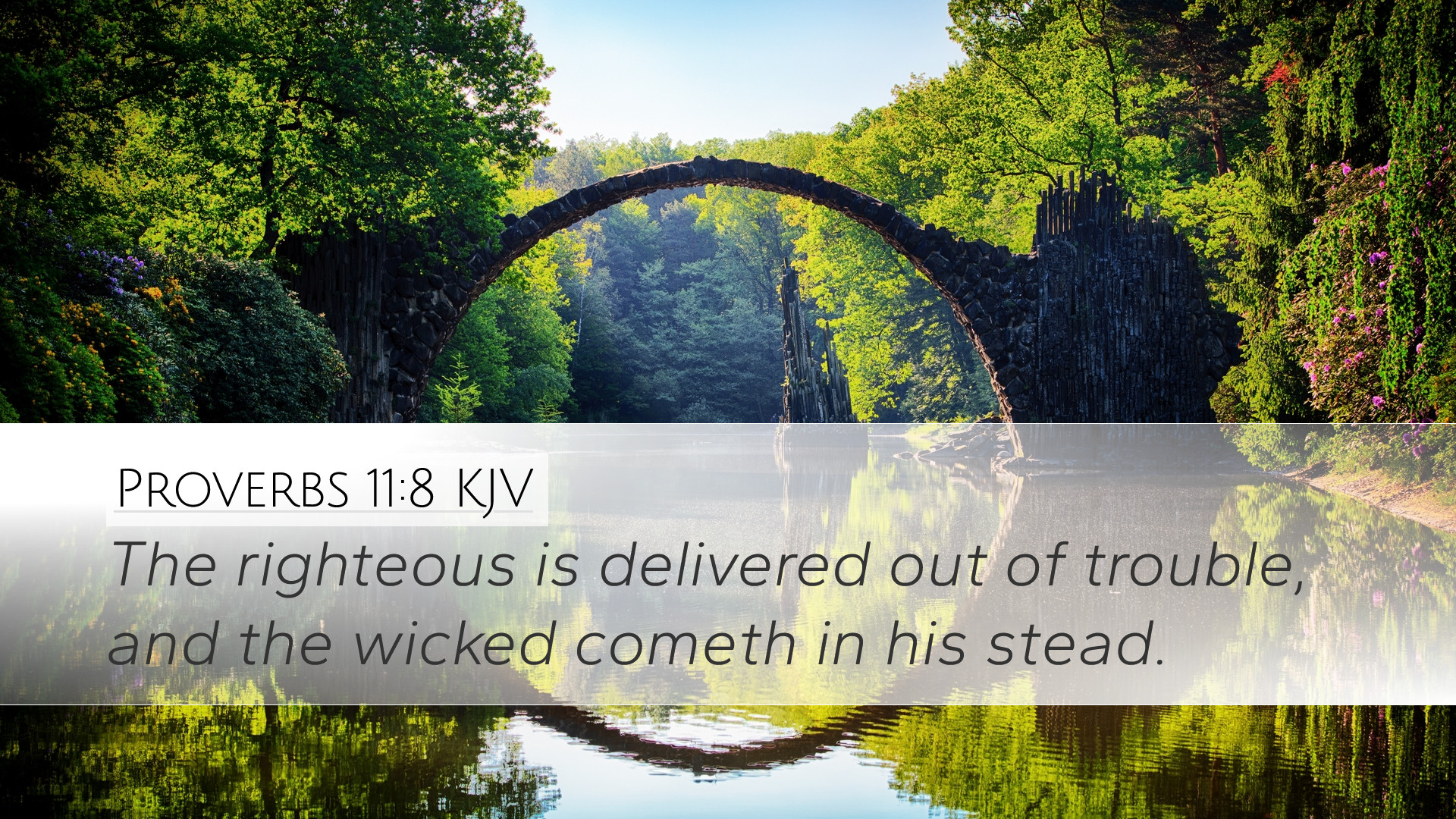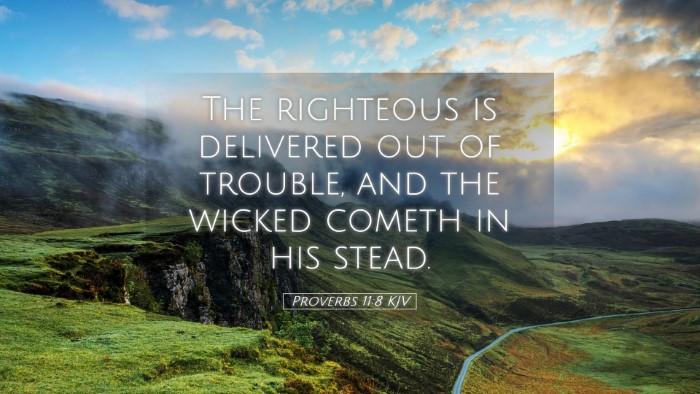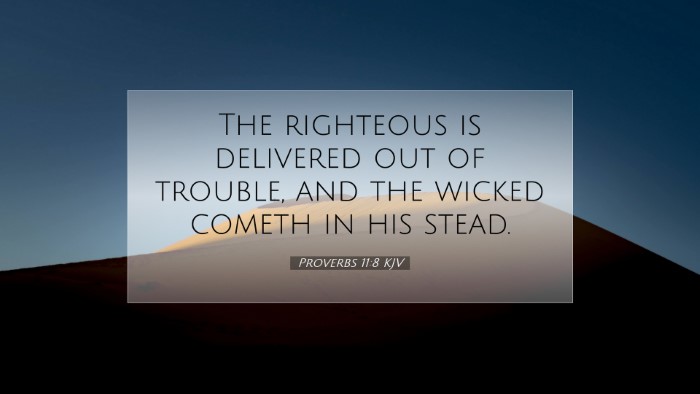Commentary on Proverbs 11:8
Verse: Proverbs 11:8 - "The righteous is delivered out of trouble, and the wicked cometh in his stead."
Introduction
This verse captures the essence of the contrast between the righteous and the wicked, illustrating the divine order and justice within the moral framework of life. The insights from various public domain commentaries offer a multi-faceted understanding of this profound wisdom, helpful for pastors, students, theologians, and scholars alike.
Overview
The juxtaposition of the righteous and the wicked in this verse is a recurring theme in Proverbs. The tension between these two archetypes not only serves as a moral compass but also as an assurance of God's protective providence over the righteous. Through detailed commentary, we can explore the implications of this truth.
Commentary Insights
The following sections summarize key insights derived from the works of Matthew Henry, Albert Barnes, and Adam Clarke.
Matthew Henry's Commentary
Righteousness and Deliverance: Matthew Henry emphasizes that the righteous, by virtue of their moral standing before God, will experience deliverance in times of trouble. He notes that the troubles faced by the righteous may be manifold, including social, familial, and spiritual adversities. However, their faith and integrity ensure God's intervention.
Contrast with the Wicked: Henry points out that the fate of the wicked is also highlighted here; they may initially appear to thrive yet ultimately they will encounter the very troubles they seek to evade. Their downfall is often swift and is a reversal of the righteous' experience. This dynamic promotes the hope that those who live righteously will find refuge in God.
Albert Barnes' Notes:
Divine Justice: Albert Barnes articulates the principle of divine justice inherent in this verse. He declares that the deliverance of the righteous is a testament to the overarching order of God's governance. The deliverance is not merely a physical escaping from trouble but includes spiritual and moral liberation.
The Role of Trouble: Barnes notes that trouble serves a purpose in the life of the righteous. It tests their faith, purifies their character, and ultimately brings them closer to God. The troubles faced by the wicked, on the other hand, can lead them to despair and destruction as they lack the moral foundation that allows for hope and redemption.
Adam Clarke's Commentary
Understanding Deliverance: Adam Clarke expands on the notion of deliverance, asserting that when trials come upon the righteous, it is God’s way of manifesting His power and faithfulness. Clarke illustrates that this verse should encourage believers to trust in God, knowing that their deliverance is not based on their righteousness alone but on God's grace and sovereignty.
A Divine Exchange: Clarke elaborates on the phrase, "the wicked cometh in his stead." He interprets this as a divine exchange where the wicked, through their actions, may inadvertently become the very cause of their own downfall. The implications are profound; the wicked are often consumed by their own wickedness, while the righteous are supported by their faithfulness.
Theological Implications
This verse raises significant theological themes, especially concerning the nature of God and His relationship with humanity.
- The Sovereignty of God: The idea that the righteous are delivered underscores God’s sovereignty in human affairs.
- Justice and Mercy: God's justice is evident in the fate of the wicked as well as His mercy in delivering the righteous.
- Faith and Deliverance: The connection between faithfulness and deliverance shows the importance of maintaining one’s integrity under pressure.
Practical Applications
For pastors and church leaders, this verse offers guiding principles for counsel and encouragement among their congregations:
- Encouragement in Trials: Encourage those facing difficulties to rely on God’s promises, reminding them of the righteousness that comes from a faithful walk with Him.
- Warnings for the Wicked: Use this scripture to caution others about the dangers of wickedness and the tumultuous end it entails.
- Preaching Hope: Emphasize the hope that comes through righteousness and the ultimate rescue delivered by God.
Conclusion
Proverbs 11:8 serves as a potent reminder of the contrast between the righteous and the wicked. Through the lenses of respected commentaries, we see that righteousness leads to deliverance while wickedness inevitably leads to trouble. This insight is crucial for anyone studying the Scriptures, offering not only theological depth but also practical wisdom for navigating life's challenges. Pastors, scholars, and laypeople alike can draw strength and counsel from this verse, fostering a deeper trust in God's providence and a commitment to righteous living.


